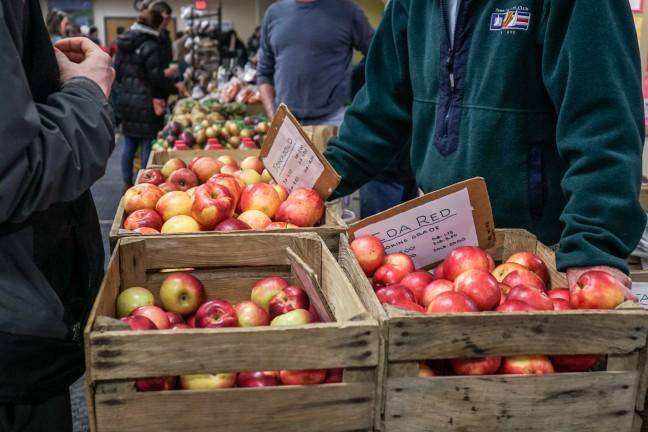May 2019 University of Wisconsin School of Business graduates alumni Ben Winters and Jake Levitt started off FoodChain to better connect local farmers with potential buyers.
According to a UW press release, FoodChain provides three “core services.” The first is to foster better connections between producers and buyers through an online marketplace, where farmers can put up information about and market their produce, and potential buyers can easily access these local food options.
The second service provided is through the creation of a digital system, where payments can be made more easily and efficiently. The digital system also helps reduce miscommunication among parties and bring down bookkeeping costs incurred from tracking money transactions, according to the press release.
FoodChain also offers local delivery for producers as its third core service. Winters said FoodChain will create a central drop point for farmers to send their produce, and the organization will take over deliveries from there.
According to the FoodChain website, deliveries are made twice a week and buyers can choose where and when to receive their products.
“We realize that connecting [small farmers] with these self-purchasers and other businesses that might seek to buy local food would be the best way to do it, and from there we start running with it,” Winters said.
According to the FoodChain website, the traditional food distribution system caters mainly to the interest of larger corporations and oftentimes marginalizes needs and preferences of local producers and buyers.
There is also a rising demand for local produce, as consumers become more conscious of food safety and environmental sustainability, according to the website.
Among all the challenges they have encountered during the process, Winters said distribution of food items has always been a major one.
Winters compared the food market with that of clothing, and said dealing with food could be more complex and challenging.
“If you have a clothing marketplace, you have a list of products and can store [them] in USPS,” Winters said. “They get delivered to the purchaser. But obviously with food, pricing comes down to weight, and then you can’t throw [them] in the mail most of the time, that will jeopardize half of the food. So you take precautionary steps in terms of distribution.”
Currently, Madison entrepreneurial hub StartingBlock hosts FoodChain’s offices, and its distribution center is located in the Food Enterprise and Economic Development Kitchens in Madison, according to the press release.
While FoodChain provides services in Madison, the press release stated that it plans to reach Milwaukee and Chicago in 2020.
Winters said Milwaukee and Chicago were selected as hopeful future markets due to their close proximity to Madison and their relatively large market sizes.
Winters said Madison’s geographical location makes it the perfect distribution point to bigger cities like Milwaukee, Chicago and Minneapolis.
The company is currently building up the supply of producers in Wisconsin and trying to expand the catalog of products provided as much as possible, Winters said. Future plans include the creation of a warehouse in Madison to better facilitate distribution to other cities.
“We are going to make Madison our hub of all the products,” Winters said. “I think we can use Wisconsin products and Wisconsin farms to supply all these neighboring cities around us, while only using Wisconsin farmers.”
UW sophomore Curtis Feldner said he supports farmers, and companies bolstering their business is important.
“I think if we are able to put more power in farmers’ hands, I would definitely feel better about [these companies] … I like to support farmers [because] I think they do very important work,” Feldner said.
Despite all the benefits the new system could bring, Feldner said he worried the resulting rise in demand for local produce may lead to farmers being over-competitive with each other in price in order to attract more customers.
Feldner said he was especially concerned about the competition driving farming away from profitability.
“I worry about farmers being pushed to this really intense thing … I’m worried about them having to cut their prices in order to stay competitive,” Feldner said.
In response to those concerns, Winters said having everyone’s products in the market allows farmers to market their prices themselves, which will help the market to arrive at the true price for each product and improve on efficiency.
FoodChain is expected to start operating in about two weeks, Winters said.


